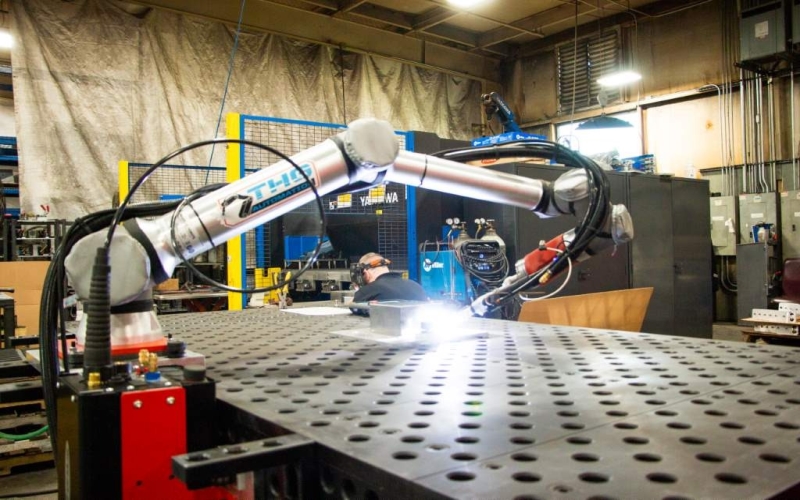In recent years, the manufacturing landscape has undergone a profound transformation, largely due to advances in automation technology. Among these innovations, cobot welding systems have proven to be groundbreaking, providing unparalleled efficiency, precision and safety in welding processes. As UK industry strives to increase productivity while ensuring worker wellbeing, cobot welding has become a focus for many companies. Let’s explore the importance of cobot welding systems, their impact on the UK market and the role of cobot welding providers in facilitating this transition.
Cobot welding, short for collaborative robot welding, refers to the use of robotic systems designed to work alongside human operators in welding tasks. Unlike traditional industrial robots that operate behind safety cages, cobots are designed to operate safely in close proximity to humans, fostering collaboration rather than isolation. This collaborative nature of cobots makes them particularly well-suited for small to medium-sized enterprises (SMEs) where space and resources may be limited.
One of the key advantages of cobot welding systems is their flexibility and ease of programming. Unlike conventional welding robots that require extensive programming expertise and complex setup, cobots can be programmed through intuitive interfaces or even taught by demonstration. This user-friendly approach not only reduces implementation time but also empowers workers to quickly adapt and reconfigure cobots for different welding tasks, thus enhancing operational agility.
Moreover, cobot welding systems are equipped with advanced sensing and vision technologies, enabling them to precisely adapt to variations in workpieces and welding conditions. This level of adaptability ensures consistent weld quality, minimises rework, and reduces material waste, ultimately leading to cost savings for manufacturers. Additionally, cobots are inherently safer to operate than traditional welding robots, thanks to built-in safety features such as force-limiting sensors and collision detection systems. This mitigates the risk of workplace accidents and enhances overall worker safety, a critical consideration for businesses in the UK aiming to comply with stringent safety regulations.
In the UK, the adoption of cobot welding systems is steadily gaining momentum across various industries, including automotive, aerospace, and fabrication. Small and medium-sized manufacturers, in particular, are increasingly turning to cobot welding to stay competitive in a rapidly evolving market. By investing in cobot welding technology, UK businesses are not only streamlining their welding operations but also future-proofing their production processes against labour shortages and increasing labour costs.
Central to the widespread adoption of cobot welding systems in the UK is the presence of reliable cobot welding suppliers. These suppliers play a pivotal role in providing businesses with access to cutting-edge cobot technology, comprehensive training, and ongoing technical support. By partnering with reputable cobot welding suppliers in the UK, manufacturers can ensure seamless integration of cobot welding systems into their existing workflows, maximising productivity and ROI.
In conclusion, cobot welding systems represent a paradigm shift in the field of welding automation, offering unparalleled efficiency, safety, and flexibility. In the UK manufacturing sector, cobot welding is poised to revolutionise welding processes, enabling businesses to enhance productivity, improve weld quality, and ensure worker well-being. As cobot welding continues to gain traction, the role of cobot welding suppliers in the UK will be instrumental in driving innovation and facilitating the widespread adoption of this transformative technology.
Click the link below to find out more!

